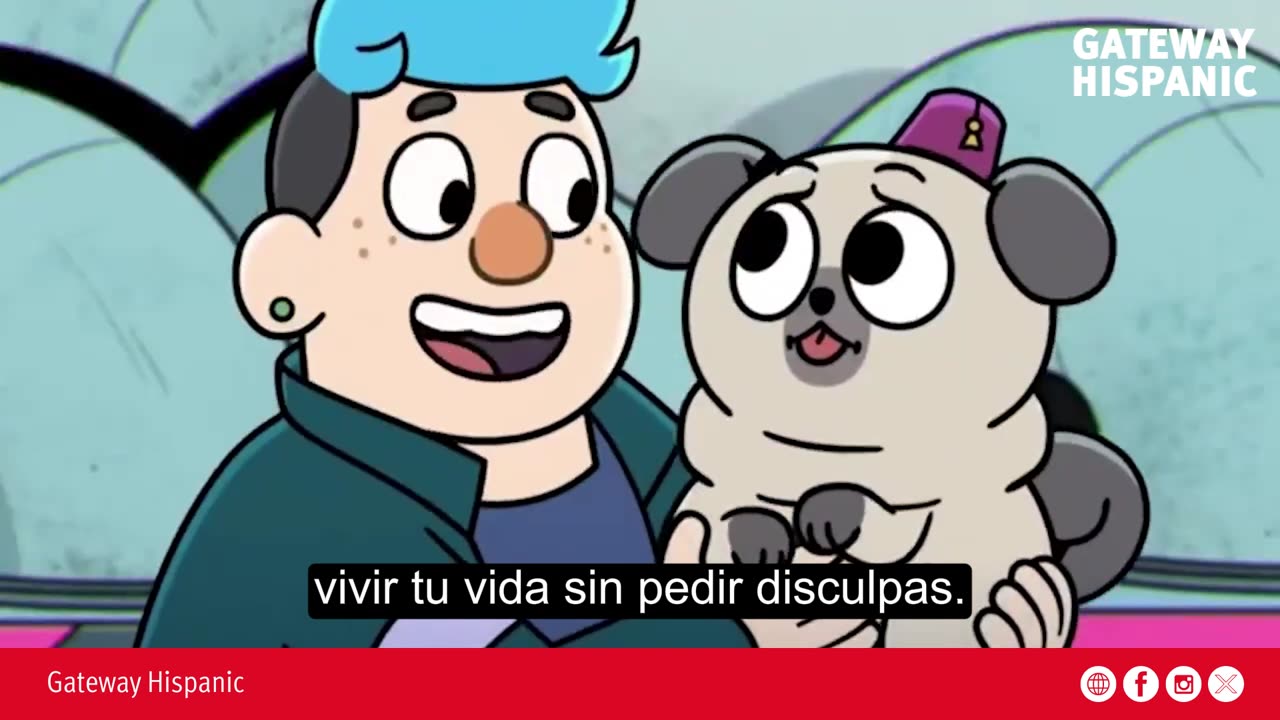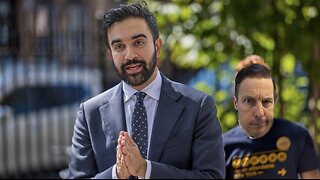Premium Only Content

Controversy in Dead End: Paranormal Park: Transgender Content in a Children’s Show
The popular children’s animated show Dead End: Paranormal Park has sparked significant controversy in the United States following the airing of a scene in which a main character reveals their transgender identity. The scene, aimed at a young audience, shows the character Barney discussing their transition and reflecting on how to live their life “without apologies.”
For many parents and conservative organizations, this inclusion represents an example of inappropriate content for children, which should be addressed in a proper educational context rather than in entertainment programming.
The Scene in Question
In the episode, Barney says:
"It’s not the park, it’s me. It’s me. I’m trans, Norma, and everyone at school knows, and everyone at home knows. Being here feels like a completely new place: I can just be Barney and choose if and when to tell people; I’ve never been this happy, and that’s saying a lot after spending the day being chased by terrifying zombie pets. Pugsley reminded me how important it is to live your life unapologetically, so I think I have to give living here a chance, don’t you think? We’ll be best friends, hahaha. You don’t need my permission; I just wouldn’t want Courtney as a roommate."
The scene, which blends entertainment with messages about gender identity, has ignited a national debate over the boundaries of children’s content and the responsibility of creators toward young audiences.
Reactions from Parents and Conservatives
Many parents have expressed concern over exposing children to gender identity topics at an early age, noting that such content could affect their emotional development and understanding of complex issues that should be addressed at home or in a supervised educational setting.
Conservative organizations have criticized the show’s creators for normalizing conversations about gender identity in a format designed for children, arguing that this could confuse minors who do not yet have the tools to safely and responsibly process these topics.
Cultural and Educational Debate
The controversy also reflects a broader debate about children’s culture in television and streaming. Platforms like Netflix have increased the inclusion of LGBTQ+ characters in children’s programming, claiming their goal is to promote diversity and acceptance. However, critics argue that early exposure to these topics should be gradual and contextualized, rather than presented as part of an entertainment narrative without additional explanation.
Conservative experts in child education stress that entertainment programs have a significant impact on the formation of values and perceptions in children, and that incorporating debates on gender identity into animated content without adult supervision could create confusion or unnecessary social pressure.
The Role of Platforms and Parental Responsibility
While Netflix and other streaming services defend inclusion as part of a policy of diversity and representation, critics emphasize that parents have the right to control what content their children consume. They argue that the “children’s show” rating should be strictly enforced to ensure that messages align with the maturity and understanding of the audience.
The controversy over Dead End: Paranormal Park has led some parents to request clearer warnings for episodes addressing gender identity, arguing that the responsibility of content creators must be balanced with parents’ ability to decide what is appropriate for their children.
Conclusion
The inclusion of a transgender character in a children’s show like Dead End: Paranormal Park has sparked a national debate about the appropriateness of certain content for minors. While streaming platforms promote diversity and inclusion, many parents and conservatives believe children should not be exposed to complex gender identity topics without proper educational context.
This controversy highlights the need for a balance between representation and childhood protection, ensuring that entertainment media meet appropriate standards for their audience and respect parental authority in shaping values and understanding sensitive issues.
-
 1:26:01
1:26:01
The Quartering
2 hours agoYoung Republican Smear, Woke Sidewalks Washed Away, Major Changes To X & More
25.7K29 -
 LIVE
LIVE
Dr Disrespect
5 hours ago🔴LIVE - DR DISRESPECT - BATTLEFIELD 6 - THE PERFECT WEAPON
1,627 watching -
 LIVE
LIVE
Darkhorse Podcast
2 hours agoThe 296th Evolutionary Lens with Bret Weinstein and Heather Heying
279 watching -
 LIVE
LIVE
StoneMountain64
33 minutes agoI can't stop playing BATTLEFIELD 6
54 watching -
 LIVE
LIVE
Jeff Ahern
1 hour agoNever Woke Wednesday with Jeff Ahern
132 watching -
 1:24:59
1:24:59
Sean Unpaved
3 hours agoPrime Pulse: Yamamoto's Gem, Mendoza & Simpson's Title Quest, & NFL QB Rule Shift
23.3K1 -
 2:38:53
2:38:53
The Shannon Joy Show
4 hours agoCharlie Kirk Killing Exploited For Trump’s Everything War - Insurrection Against The Constitution
18.1K12 -
 10:54
10:54
Midwest Crime
3 hours agoTrain Platform Killer Caught on Camera
571 -
 10:02
10:02
China Uncensored
3 hours agoChina Has LOTS of Regret
4689 -
 30:39
30:39
The Boomer Effect
4 hours agoBurnout Is Not a Badge: Redesign Your Life
4